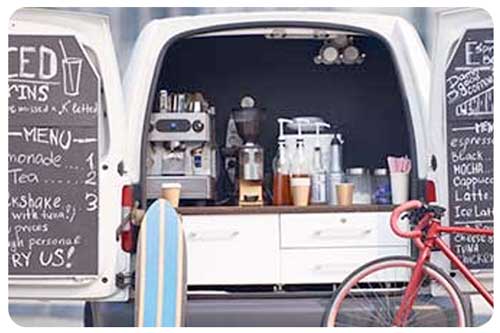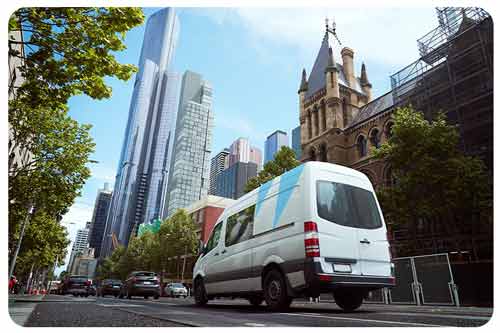How can I get the lowest commercial auto insurance premium?
Keeping operations costs down is important. We know that owners want cheap insurance. Here are some ways to lower how much you pay:
- Choose vehicles wisely: The vehicle you drive will always impact insurance costs. Choose something that makes sense for your operations.
- Limit access to safe drivers: Employ drivers who have a clean driving record and are safe drivers.
- Check for available savings: You may be eligible for many discounts and savings programs.
- Invest in driver training for employees: This is important if you have a fleet of drivers. Enrolling drivers in safe driving classes can help keep fees down. It will also help reduce the odds of accidents.
- Drive less: How much you drive is a key factor. Look for ways to reduce the time you spend behind the wheel.
- Safety and security: Install aftermarket security systems and park in secure locations.
- Mitigate threats: Implementing risk management practices to prevent accidents and claims.
- Minimize theft: Installing an anti-theft device to deter theft will reduce your rate.
- Monitor driving habits: Using usage-based insurance or a telematics device to monitor and promote safe driving will help reduce your premiums.
How do modifications made to a commercial vehicle affect insurance coverage?
Modifications to commercial vehicles can increase premiums, especially if you add equipment, tools, or expensive customizations. It is common to see business vehicles with custom wraps, toolboxes, levers, winches, and custom equipment.
It's important to notify your insurer if you plan to modify your vehicle in any way. This will ensure modifications are accounted for in your policy. If you fail to disclose modifications to your insurer, you could have your claim denied or not have any modifications included in repairs.
Collisions, claims and commercial auto insurance coverage
There are a few unique situations where your coverage may work slightly differently than personal insurance if you are in a collision:
What happens if you are in an accident when using your personal vehicle for business?
Your claim could be denied if you have an accident while using your vehicle for business purposes and your policy doesn't cover this specific usage. This would mean you'd be responsible for all resulting expenses. Furthermore, your insurer might cancel your policy for not disclosing the intended business use of your vehicle, potentially leading to higher premiums on future policies.
What happens if an employee gets into an accident while driving a company vehicle?
Employers are typically responsible for maintaining, insuring, and ensuring the safety of their vehicles. The employer's commercial auto insurance usually covers the damages if an employee is at fault while operating a company vehicle.
Under the principle of vicarious liability, employers can also be held responsible for their employees' actions during work duties. If an employee acts within the scope of their employment and causes an accident, they are generally not responsible for the resulting damages.
However, if the employee acts recklessly, violates local laws, or disregards company rules, the responsibility for the accident may shift to the employee.
When can an employee be held liable for a collision when driving a work vehicle?
There are some situations where an employee can be held liable for a work vehicle accident:
- The employee was running a personal errand.
- The employee was committing a crime.
- The employee was commuting to or from work (even in a company vehicle).
What if an employee gets in an accident and is not listed on the commercial auto policy?
If an employee who is not listed on your policy causes an accident, your insurer could deny your claim. This situation commonly arises when you hire a new employee and forget to add them to your policy.
It's very important to provide your insurer with an updated list of all drivers who will be driving and have access to your business vehicles. Speak with your insurer to verify the requirements for listing employees on the commercial auto policy.













